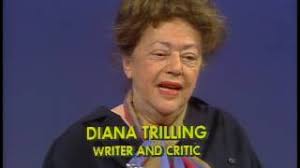22. Colson Whitehead
“He liked the punch-drunk ones, half walking at mile
twenty-three, tongues flapping like Labradors.” – Colson Whitehead
There’s something in it, this whole
rooting for the underdog thing. I get it, I do it, too. I don’t follow the New
York Marathon, but I’m sure if I did, I’d have the exact same attitude as
Elwood Curtis (or the man purporting to be Elwood Curtis) in Colson Whitehead’s
The Nickel Boys. As the novel’s narrator puts it, “It [is] easy to root
for winners.” Indeed, too easy. Anyone can simply align themselves with the
champion and bask in their reflected glory. But there is no real triumph in
this. If we hope to reap the moral rewards when our guy finally wins it all, it
helps if we’ve thrown in our lot with the underdog, whether that’s a runner in
a one-off event like the Marathon or a sports team that we follow over the
course of a season. The reward increases in indirect proportion to the
perceived quality of the champion. Were one of the Marathon’s unlikely
punch-drunk runners to somehow win it all, then how justly would Elwood Curtis
celebrate, having been in, as it were, on the ground floor?
In addition to the sense of moral vindication
that comes from rooting for an underdog-made-good, such an attitude can also serve
a more constructive purpose: it is a ward against aligning with power. After
all, it’s not such a large step to go from identifying with a favorite in the
sports world to siding with corporations as they attempt to crush their labor
forces or to rooting on the United States to make a show of military force
against some hapless nation we’ve deemed an enemy. We don’t generally have one attitude
towards life in one area and a completely different attitude in the rest. Other
qualities we can develop from siding with the underdog: humility, a healthy
distrust of winning at all costs, an enjoyment of the process over the final
results.
Of course, this is not the way most
people follow sports. We generally pick a team when we’re young and then root
for that team throughout the course of our lives, whatever the organization’s
changing fortunes. But it’s certainly true that those who have picked teams
deemed “underdogs”—the Chicago Cubs before 2016, the New York Mets most years,
any team with a tiny payroll—take a certain pleasure in playing up this status.
As a Mets fan, I’ve certainly been known to do this. (My favorite football
team, the Buffalo Bills, is too dismal even to qualify as an underdog.) But
this seems ultimately a little foolish. The Mets had a 2019 payroll of $162
million, eighth highest in baseball, are owned by a family of real estate
developers who profited off of Bernie Madoff’s ponzi schemes, and play in a huge
media market. They may be underachievers compared to the Yankees, but they are
not underdogs.
And, neither, really is any team in
American professional sports. It may feel good to root for the Tampa Bay Rays
(I do sometimes), who despite having one of the lowest payrolls in baseball,
are always competitive. And it is impressive the way that they continually make
smart moves to overcome this disadvantage. But they are still a major corporate
entity worth almost a billion dollars. In the end, it is fun and instructive to
root for a team like Tampa. It shows a fine attitude towards life that
hopefully translates to the larger world. But it is not a morally superior act,
both because fandom in itself is too arbitrary, and most importantly, because
there is no such thing as uncompromised allegiance in any multi-billion dollar
industry. Rooting for a hapless, tongue-flapping marathoner, though, is quite
another matter.



Comments
Post a Comment